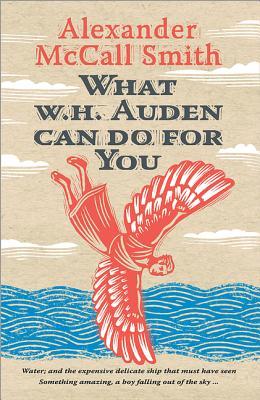First published:- 2013
Published by:- Princeton University Press
How should we like it were stars to burnWith a passion for us we could not return?If equal affection cannot be,Let the more loving one be me.
This is not literary criticism per se, but rather a mixed bag of Smith's views on the poet's personal life, his body of work and the way his worldviews figured in his poetry. It goes without saying, literature students may find this book vastly redundant as it contains nothing that hasn't already been recorded by academicians who have analyzed and dissected Auden's poetry from all probable angles. And Smith acknowledges this right at the beginning, very clearly stating that his intention behind writing this has been to offer a tribute to Auden who was, in a way, his personal literary icon.
There are separate chapters devoted to Auden's early years at Gresham's School, another one in the long tradition of stiff upper-lipped English boarding schools, and later at Oxford, his lifelong friendship with Christopher Isherwood who had been inspired to write the renowned Goodbye to Berlin after Auden's visit to Berlin in 1928, his homosexual dalliances, his desire to drive an ambulance during Spanish Civil War which resulted in one of his celebrated, but subsequently disowned, poems 'Spain'(vehemently denounced by George Orwell who of course was accredited with a deeper understanding of the politics of the Civil War), his growing admiration for socialism in the wake of the rise of fascism in Europe prior to the Second World War and his eventual disillusionment with Communism.
Auden's poetry is widely criticized as a hollow compilation of sublime imagery and flowery writing with little to no depth but Smith, in the tradition of most Auden lovers, defends the sanctity of his work with assertions like the following:-
"'In Praise of Limestone' contributes greatly to the appeal of what he wrote. It is easy on the ear - and ease here has no pejorative implications: the fact that something is easy to listen to does not make it less intellectually significant."
"There are plenty of poets, especially those given to the writing of confessional verse, who are ready to tell us about their particular experience of love. We listen sympathetically, and may indeed be touched or inspired by their insights. But few poets transcend the personal when talking about love. They are talking, really, about how they felt when they were in love; Auden digs far deeper than that. He talks about love and flesh as it can be experienced by all of us - he transcends the specific experience in a particular place and time, to get to the heart of what we are."
Smith also makes a significant point in regard to Auden's disposition as a poet, he was known to acknowledging misrepresentations of facts in his earlier poems instead of quietly hoping for the work in contention to be erased from public memory like the other writers of his time did. He humbly acknowledged whenever he was wrong and was extremely self-critical.
To conclude, this is a fine book to gift to the random Auden devotee and perfect for introducing Auden to a neophyte who knows virtually nothing about the great Anglo-American poet (like myself for instance).
Also published on Goodreads and Amazon.



No comments:
Post a Comment